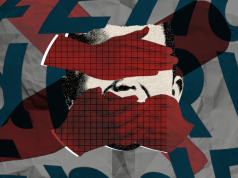
MANILA, Philippines – The House of Representatives has approved on third and final reading a bill imposing a total ban on hazing, which seeks to replace the current law to put in place a tougher measure.
All 210 lawmakers present at Monday night’s session voted for House Bill No. 6573, which “prohibits hazing and regulates other forms of initiation rites of fraternities, sororities, and other organizations.”
The proposed measure will repeal Republic Act No. 8049 or An Act Regulating Hazing and Other Forms of Initiation Rites in Fraternities, Sororities and Other Organizations and Providing Penalties Thereof.
The bill defines hazing as “intentional, knowing or reckless act by a person acting alone or acting with others that is directed against an individual, that the person knew or should have known would endanger the physical health or safety of the individual, and that is done for purposes of, but not limited to, pledging, being initiated into, affiliating with, participation in, holding office in, or maintaining membership in any organization.”
It said that the act of hazing includes “pressuring or coercing the individual into violating the law, any brutality of a physical nature, such as whipping, beating, striking, branding, electric shocking, placing of a harmful substance on the body, or similar activity, unnecessary prolonged exposure to the elements, forced consumption of any food, liquor, drug or other substance, or other forced physical activity that subjects the individual to unnecessary risk of harm or that could adversely affect the physical health or safety of the individual.”
It also includes “any activity that would subject the individual to psychological harm or extreme mental stress, such as sleep deprivation, forced confinement in a small space, forced exclusion from social contact, conduct that would result in extreme embarrassment, or other activity that could adversely affect the mental health or dignity of the individual.”
The ban would also cover the hazing activities of fraternities, sororities and organizations not based in schools, such as those community-based.
The person or persons who participated in the hazing shall suffer imprisonment for 20 years and one day to life imprisonment and a fine of P1 million if death, suicide, rape, sodomy or mutilation results from their activity.
Initiation rites, which will be regulated, may refer to “ceremonies, practices, rituals or other acts, whether formal or informal, that a person must perform or take part in order to be accepted into a fraternity, sorority, or organization as a full-fledged member.”
According to the bill, before any initiation rites, a written application shall be made to the proper authorities of the school seven days before the activity; the application shall contain the place and date of the rites.
A medical certificate of the recruit, neophyte or applicant must be attached to the application to ensure fitness to undergo such activity. The initiation rites shall not last for more than three days.
During initiation rites, at least two representatives of the school must be present. All fraternities, sororities and organizations must also assign a faculty adviser responsible for monitoring their activities.
Other salient provisions of the bill:
• The owner or lessee of the place where hazing is conducted shall be liable as a principal when they have actual knowledge of the hazing , but failed to promptly report it;
• School authorities including faculty members as well as local officials shall be held liable as principals for incidents of hazing if it can be shown that they allowed or consented to the conduct of hazing but failed to take any action to prevent or report this;
• The officers, former officers or alumni of the fraternity, sorority or organization who actually planned the hazing although not present when the hazing was committed shall be held liable as principals;
• The presence of any person during the hazing is prima facie evidence of participation as principal unless that person prevented the commission of hazing;
• The incumbent officers of the fraternity, sorority or organization concerned shall be jointly liable with those members who actually participated in the hazing.









